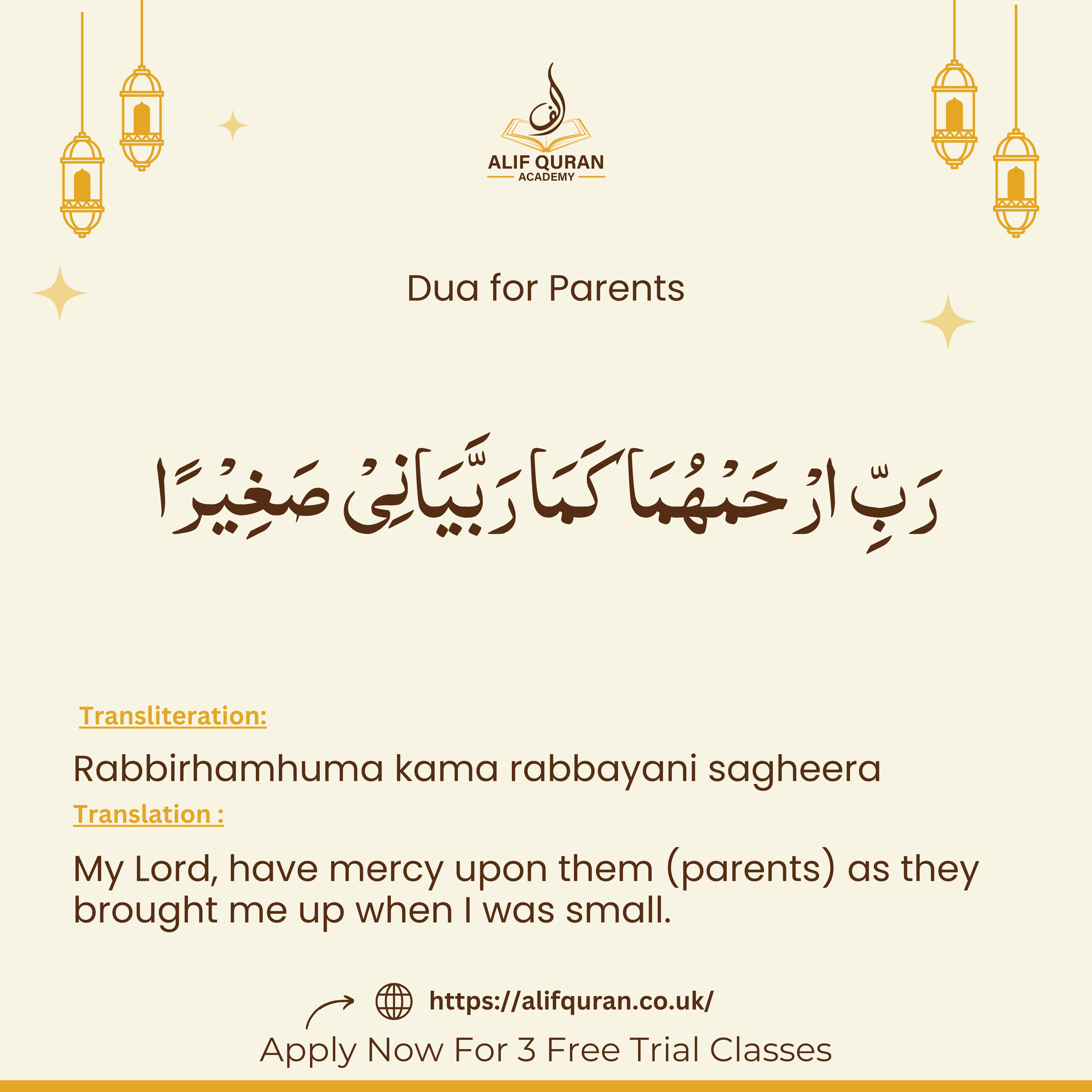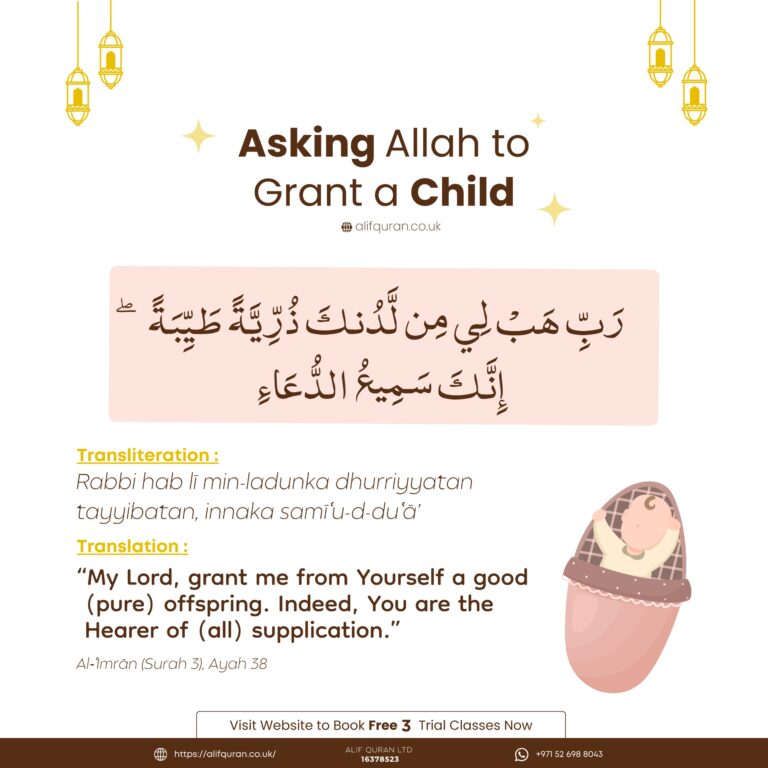Transliteration: Rabbirhamhuma kama rabbayani sagheera.
Translation: My Lord, have mercy upon them (parents) as they brought me up when I was small.
Islam places immense importance on the role and status of parents. The Quran and Hadith emphasize treating them with kindness, respect, and love. One of the most beloved supplications in Islam is the Dua for Parents:
رٞبِّ ارْحَمْهُمَا كَمَا رَبَّيَانِي صَغِيْرَا
Transliteration: Rabbirhamhuma kama rabbayani sagheera
Translation: “My Lord, have mercy upon them (parents) as they brought me up when I was small.” (Quran 17:24)
This heartfelt prayer encapsulates gratitude, love, and a lifelong commitment to honoring one’s parents.
Importance of the Dua for Parents in Islam
Islamic teachings make it clear that obeying and being kind to one’s parents is second only to the worship of Allah. Allah commands believers to recognize the sacrifices made by their parents and to pray for their mercy and wellbeing. The Dua for Parents is a divine reminder of this obligation.
Quranic Emphasis: In Surah Al-Isra (17:23-24), Allah commands believers to lower the wing of humility to their parents and pray for their mercy.
Hadith Support: The Prophet Muhammad (peace be upon him) emphasized that pleasing one’s parents leads to Allah’s pleasure and displeasing them leads to His anger.
The Meaning Behind the Words
Let’s break down the meaning of this powerful supplication:
“Rabbirhamhuma” – My Lord, have mercy upon them.
“Kama” – Just as.
“Rabbayani” – They nurtured and raised me.
“Sagheera” – When I was small.
This shows an acknowledgment of the efforts, care, and love that parents invest in their children. By reciting this Dua, a believer asks Allah to return that mercy and care upon the parents.
When Should You Recite the Dua for Parents?
The beauty of this Dua is that it can be recited at any time, but there are certain moments when it holds particular spiritual power:
During Daily Prayers (Salah): After Tashahhud and before concluding the prayer.
In Morning and Evening Adhkar (remembrances): A part of your daily devotional routine.
At the Grave: When visiting the graves of one’s parents.
Anytime One Remembers Them: Especially if parents have passed away.
Teaching Children the Dua for Parents
Instilling love and respect for parents in children is a core Islamic value. Teaching this Dua to kids helps in:
Building spiritual habits early on.
Encouraging gratitude for parental care.
Connecting children to the Quran.
Tips for Teaching:
Use repetition and melody to make memorization easier.
Explain the meaning in simple terms.
Recite together before bedtime or after Salah.
Benefits of Reciting the Dua for Parents
Spiritual Reward: Every time you make this Dua, you gain Allah’s pleasure.
Strengthened Bonds: Helps reinforce emotional and spiritual ties between children and parents.
Continuous Charity: For deceased parents, it serves as a form of Sadaqah Jariyah (ongoing charity).
Source of Barakah (Blessing): Prayers for one’s parents bring barakah in life and sustenance.
Relevance for Today’s Families
In the digital age, where many family values are under pressure, this Dua serves as a spiritual anchor. It reminds both children and adults of the sacredness of the parent-child relationship.
In Muslim Households Abroad: For those living in the West or away from extended families, this Dua can bridge emotional distances.
For Caregivers and Teachers: It can be used to cultivate empathy and compassion among students.
FAQ
Can children recite the Dua even if they don’t fully understand Arabic?
Yes, understanding grows with age. What matters is the intention and consistent practice.
Is this Dua sufficient or should it be part of a broader prayer?
It can stand alone or be part of a longer supplication session.
Can it be recited for deceased parents?
Absolutely. In fact, praying for deceased parents is among the best gifts children can offer.
How can schools promote this Dua?
Include it in morning assemblies, homework assignments, and during Islamic Studies lessons.










